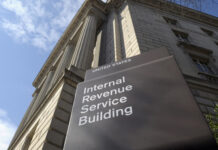
PROVIDENCE – Rhode Island is one of seven “gold star” states recognized by Environment America for their clean energy policies, in a nationwide analysis released today by the Environment Rhode Island Research & Policy Center.
The Ocean State was lauded for policies promoting renewable energy, improving energy efficiency and requiring the sale of cleaner, more efficient cars. Also awarded gold stars for adopting strong clean-energy policies in at least four categories were the states of California, Connecticut, New Jersey, New York, Oregon and Washington.
Massachusetts was one of five states awarded silver stars, for adopting strong clean-energy policies in at least two areas and “meaningful” policies in one or two others. Maryland, Maine, Pennsylvania and Vermont also were awarded silver stars.
Another nine states – Arizona, Colorado, Delaware, Illinois, Minnesota, Nevada, New Hampshire, New Mexico and Wisconsin – were honored as rising stars.
“Rhode Island is rising to our nation’s energy challenge by taking action to promote renewable energy, reduce energy consumption and put cleaner cars on the road,” said Matt Auten, a spokesman for Environment Rhode Island. “But while Rhode Island has been making progress towards a clean energy future, our leaders in Washington have been dragging their feet. We need Congress to change course, and they should start this year by passing a strong energy bill … that saves energy, saves oil and matches the clean energy leadership of states like Rhode Island.”
The Environment America analysis – entitled “America’s Clean Energy Stars: State Actions Leading America to a New Energy Future,” and posted online – focuses on five policy categories:
• The Clean Cars Program, already adopted by 12 states, that would reduce U.S. greenhouse-gas emissions by 1 percent by 2020, the equivalent of taking 13.6 million cars off the road.
• Renewable electricity standards, adopted by 25 states and the District of Columbia, that would reduce global-warming pollution nationwide by about 2 percent and save enough energy to meet more than 5 percent of current U.S. needs.
• Utility energy-efficiency programs that, if adopted nationwide, could reduce electricity consumption by 8 percent compared with business-as-usual levels in 2020 and reduce global-warming emissions by about 4 percent.
• Energy efficiency standards for appliances, adopted by 12 states since 2002, which could reduce carbon dioxide emissions nationwide by about 1 percent of their current level and save enough energy to meet 2 percent of the U.S. electricity needs
• Building energy codes, adopted in 14 states for residential projects and 17 for commercial projects, that could pare U.S. emissions by nearly 1 percent and eliminate the need for 32 new 400-megawatt power plants.
Nationwide policies endorsed by the report include expanding and extending federal tax credits for energy efficient vehicles, buildings and appliances; increasing federal fuel economy standards to 40 miles per gallon by 2018; adopting a federal policy requiring 25 percent of the nation’s electricity to come from renewable sources by 2025; and increasing federal investment in energy research and development.
“Rhode Island has become a leader thanks to Gov. [Donald L.] Carcieri, Lt. Gov. [Elizabeth H.] Roberts, Attorney General [Patrick C.] Lynch and the General Assembly, working together in concert,” Auten said.
Roberts – who as a state senator twice was awarded membership on the Environment Council of Rhode Island’s Green Honor Roll – replied in a statement this afternoon: “Thousands of Rhode Islanders have joined with me over my 11 years in government to improve energy efficiency standards and clean up our Bay.”
“I am very proud that Rhode Island has been recognized nationally for its efforts to make the Ocean State a greener, cleaner environment,” added Roberts. But “this positive report does not mean our work on energy efficiency and climate change is complete. … I look forward to working together with Environment Rhode Island, the General Assembly and the governor to ensure that our clean energy successes continue in the months and years to come.”
Additional information is available at www.environmentrhodeisland.org.












